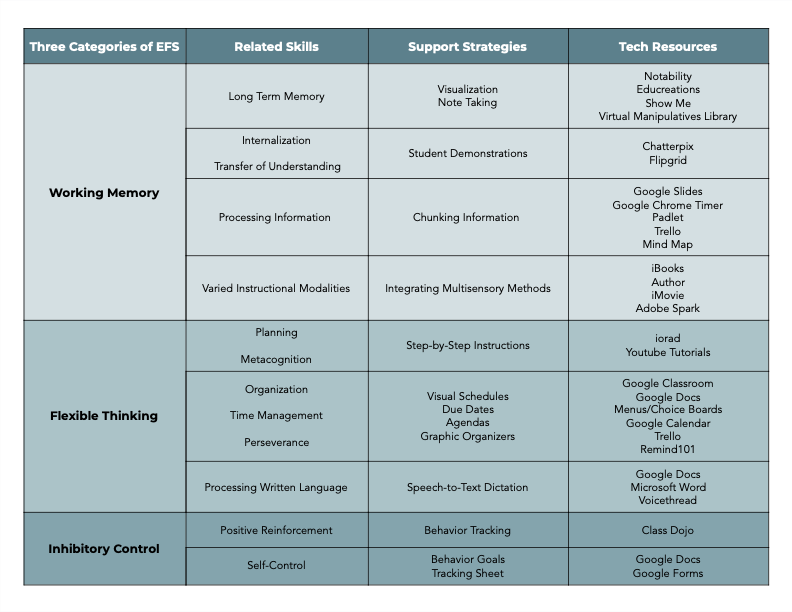Challenges we face when returning to our campuses this year are more than just academic. Some of our students have not stepped foot in a classroom for almost two years, which causes concern on several levels. Both academic progress and social/cognitive development may be substantially affected, and one such impacted area could be executive functioning skills (EFS). Teachers already face the arduous task of educating future generations, but now they are charged with catching students up academically and counteracting the adverse effects of a global pandemic on the development of our kids. Consequently, we may need to be more intentional about our approach to cognitive skills.
Critical Skills to Support
Teaching, at its core, is a social endeavor. Interaction is essential for the transmission of knowledge from one to another. In addition to crucial social interactions with classmates, far-reaching implications result when students cannot benefit from daily interaction with teachers. When our students return to school and join their friends and classmates this year, they do so with a steeper hill to climb, and teachers merit all the assistance they can get to support students’ EFS.
Some of the most urgent and critical EFS skills to develop and address are:
- Planning: the ability to figure out how to accomplish our goals
- Organization: the ability to develop and maintain a system that keeps materials and plans orderly
- Time Management: having an accurate understanding of how long tasks will take and using time wisely
- Task Initiation: independently starting tasks when needed
- Working Memory: the mental process that allows us to hold information in our minds while working with it
- Metacognition: being aware of what you know and using that information to help you learn
- Self-Control: the ability to regulate yourself, including thoughts, actions, and emotions
- Attention: being able to focus on a person or task for a period of time and shifting focus when needed
- Perseverance: the ability to stick with a task and not give up, even when it becomes challenging
- Flexibility: the ability to adapt to new situations and deal with change
Valuable Resources, Strategies, and Tools to Support EFS
Working memory, flexible thinking, and inhibitory control are three categories for EFS. If we can nurture these aspects of executive functioning, we can better ensure that students have the capacity and skills to flourish in school and life.
Resources exist that can assist teachers in mitigating the effects of absence from a social learning atmosphere. Strategies for integrating tools, methods, and resources can be leveraged to strengthen the skills students need to succeed.
Strategies and resources that can support and strengthen EFS can include:

The current challenges are merely an opportunity. Some may see the dip in progress as a burden, but in the business of education, this means that there are more teachable moments.
The good news is that we are already deploying many of the resources and strategies above to support EFS in classrooms. Essentially, we may only need to be more mindful of moments where they will fit seamlessly into instruction. What do you already employ in your classroom, or what do you plan to implement to help students strengthen EFS skills?
Dr. Eric N. Rodriguez has dedicated his 20+ years in education to supporting the success of his students and colleagues with innovative practices. His research in educational technology provides insight into the appropriateness of various platforms and the latest research-based practices in K-12 and higher education.

